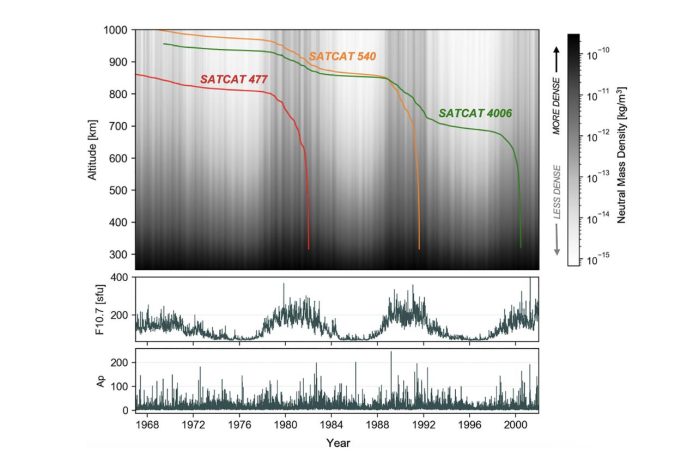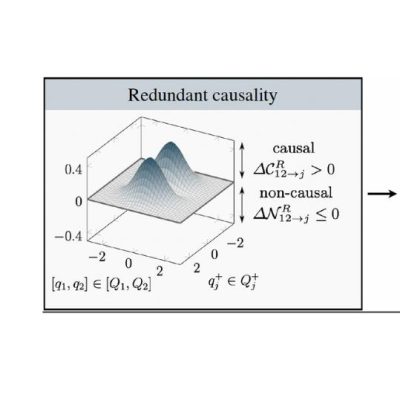
Impacts of space weather forecasting uncertainty on satellite conjunction assessment
Members of ARCLab and colleagues investigate the impacts of space weather driver forecasting uncertainty on satellite drag and collision avoidance maneuver decision-making. They demonstrate that improved driver forecasts are useful for enabling durable maneuver decisions with additional lead time.
Authors: William Parker, Mervyn Freeman, Gareth Chisham, Andrew Kavanagh, Victor Rodriguez-Fernandez, Peng Mun Siew, and Richard Linares.
Citation: American Geophysical Union (AGU) Journal of Space Weather, July 22, 2024
Abstract:
A significant increase in the number of anthropogenic objects in Earth orbit has necessitated the development of satellite conjunction assessment and collision avoidance capabilities for new spacecraft. Neutral mass density variability in the thermosphere, driven by enhanced geomagnetic activity and solar EUV absorption, is a major source of satellite propagation error. This work investigates the impacts of space weather driver forecasting uncertainty on satellite drag and collision avoidance maneuver decision-making.
Since most operational space weather driver forecasts do not offer an uncertainty assessment, the satellite operator community is left to make dangerous assumptions about the trustworthiness of the forecast models they use to perform satellite state propagation. Climatological persistence-based forecast models are developed for F10.7 and Kp. These models accurately capture the heteroscedastic and, at times, highly non-Gaussian uncertainty distribution on forecasts of the drivers of interest. A set of realistic satellite conjunction scenarios is simulated to demonstrate the contributions of space weather driver forecast uncertainty on the probability of collision and maneuver decisions. Improved driver forecasts, especially forecasts of F10.7, are demonstrated to be very useful for enabling durable maneuver decisions with additional lead time (up to 24 hr for the period examined), though the improvement depends on the specific conjunction scenario of interest.
In the media:
SpaceNews | Geomagnetic storms cause “mass migrations” of satellites
Gizmodo | Thousands of Satellites Shift Position as the Sun Unleashes Violent Outbursts

